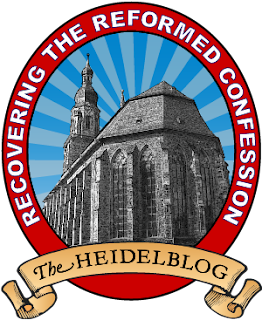By Dr. R. Scott Clark - Posted at The Heidelblog:
In talk radio the host is supposed to “re-set” the show at regular intervals. He is to remind listeners to which show they are listening and on what network or station. One reason why the host does this is because some listeners are just tuning in.
Some people are “just tuning in,” as it were, to the Federal Vision controversy, and this might be a good time to reset the show.
The FV is a 33-year-old movement that originated, at least in this episode, with the Rev. Mr. Norman Shepherd who was then teaching systematic theology at WTS/P. In 1974 he defined faith, in the act of justification, to be “faith and works.” It wasn’t that, in justification, faith is “receiving and resting,” and works are evidence and thus a sort of vindicatory justification of the claim that one believes. Nothing so nuanced or Reformed. Rather, he flatly claimed that there are two parts to faith in justification. When that created a predictable uproar, he modified his language to “faithfulness.” At the same time he, and others, went about revising covenant theology. In baptism, he wrote, we are all united to Christ and receive the benefits of Christ temporarily and conditionally. What is the condition of retaining them? Faithfulness!
